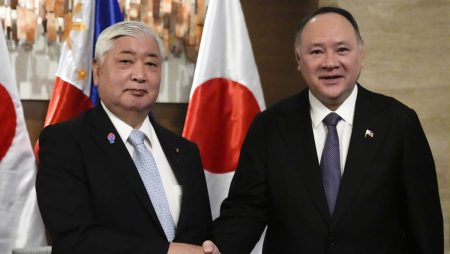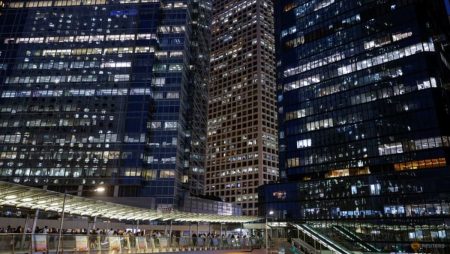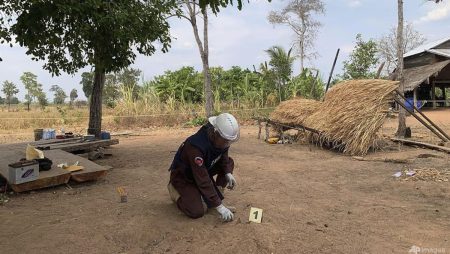The recent political turbulence in South Korea, culminating in the impeachment proceedings against President Yoon Suk-yeol, has undoubtedly caused ripples of concern within the nation’s economic landscape. A survey conducted by the Korea Federation of Small and Medium Enterprises revealed that nearly half of the approximately 500 small business owners and self-employed individuals polled in the food service and hospitality sectors experienced financial losses attributable to the political uncertainty. This sentiment reflects the inherent vulnerability of these sectors to fluctuations in consumer confidence and spending, which are often sensitive to political climates. While the immediate impact is evident, expert opinions suggest a less severe and more transient economic disruption compared to the impeachment of former President Park Geun-hye in 2016.
The relative resilience of the South Korean economy in the face of this political upheaval is attributed, in part, to a degree of desensitization and learned adaptability. Professor Jin Hyun-joung of Joongang University’s School of Economics posits that the previous experience with presidential impeachment has conditioned both consumers and businesses to anticipate and navigate such political storms. The quicker recovery observed this time, compared to the 2016 impeachment, suggests that the economic shock is less pronounced and that the market has developed a degree of immunity to the associated anxieties. This resilience is likely fueled by the understanding that political instability, while disruptive, is often temporary and that the economy tends to rebound once a resolution is reached.
Furthermore, the current economic slowdown is not solely attributable to the political turmoil. A confluence of global factors, including persistent supply chain disruptions, the ongoing US-China trade conflict, and persistently high inflation, have been exerting downward pressure on the South Korean economy for some time. These pre-existing economic challenges have contributed to a dampened growth outlook, independent of the recent political events. Professor Jin highlights that even before the impeachment proceedings, prominent economic institutions like the Hyundai Research Institute and the Organisation for Economic Co-operation and Development (OECD) had already revised their growth forecasts for South Korea downwards, acknowledging the broader economic headwinds.
Despite the relative optimism regarding the short-term economic impact of the political uncertainty, the long-term outlook remains clouded by these persistent global challenges. While Professor Jin anticipates that the immediate economic shock from the political situation will begin to subside as early as next month, he cautions that the overall growth prospects remain subdued. The combined effects of supply chain bottlenecks, escalating trade tensions, and inflationary pressures continue to pose significant challenges to sustained economic expansion. These factors necessitate a multifaceted approach to economic recovery, addressing both the immediate political fallout and the underlying global economic vulnerabilities.
The ability of the South Korean economy to weather this political storm and return to a trajectory of sustainable growth will depend on several factors. Key among these is the swift and effective resolution of the political crisis itself, minimizing further uncertainty and restoring confidence in the government and its economic policies. Simultaneously, addressing the broader global economic challenges requires concerted international cooperation and strategic domestic policies. Efforts to diversify supply chains, mitigate trade tensions, and control inflation are crucial for bolstering long-term economic stability and resilience.
In conclusion, while the recent political turmoil has undoubtedly impacted the South Korean economy, particularly within vulnerable sectors like food service and hospitality, the overall impact is projected to be less severe and more transient than the economic fallout experienced during the 2016 impeachment. This relative resilience can be attributed to a combination of learned adaptability and the pre-existence of global economic challenges that have already tempered growth expectations. While the immediate economic shock is expected to ease in the near term, the long-term economic outlook remains contingent on the successful navigation of both the immediate political crisis and the broader global economic headwinds. A multifaceted approach that addresses both the political and economic dimensions of the current situation is essential for ensuring a sustained and robust recovery.










